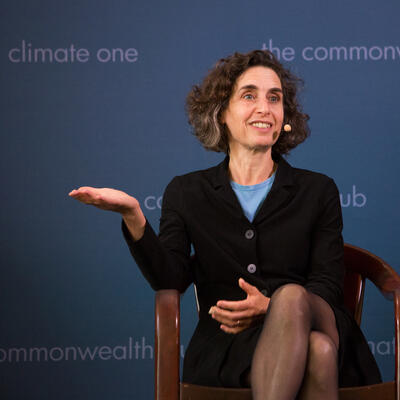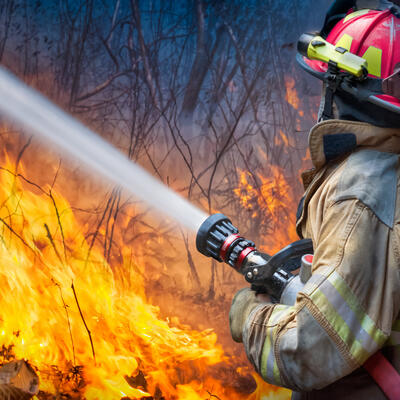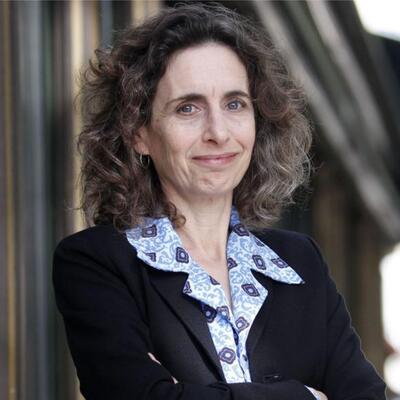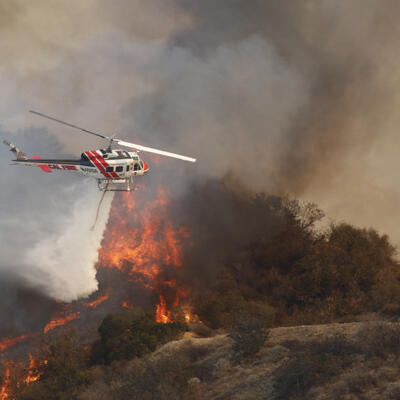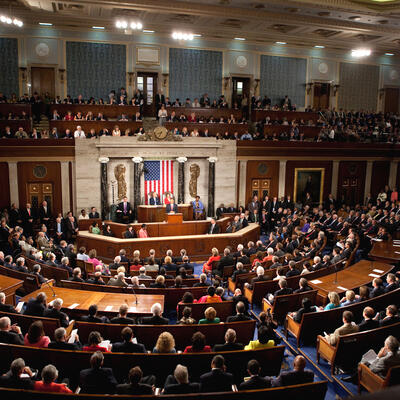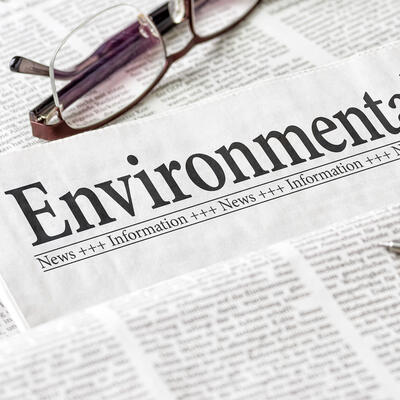
Climate Storytellers
Guests
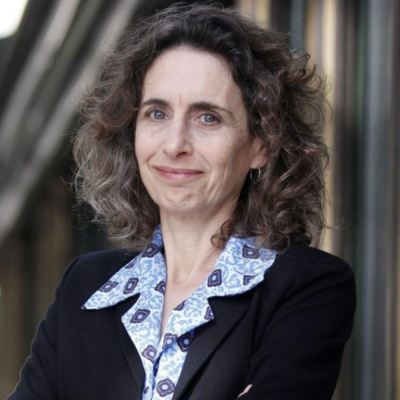
Elizabeth Kolbert
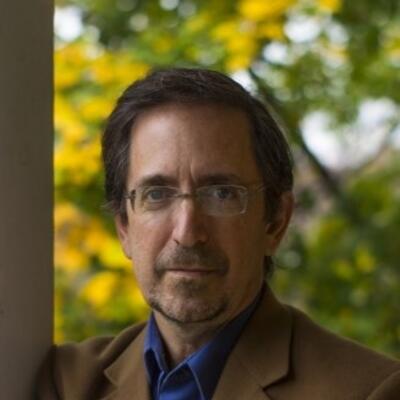
Andrew Revkin
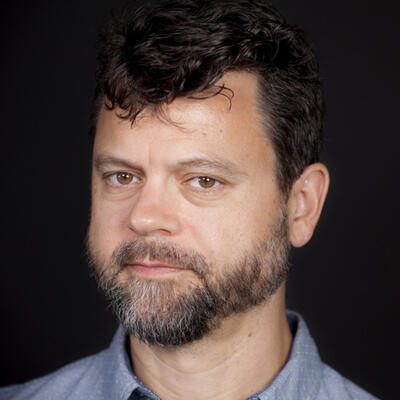
David Roberts
Summary
Strategic Adviser for Geographic Society, Andrew Revkin, has been writing about climate change since the 1980s, including 21 years for The New York Times. So what are some things he’s learned in those three decades? How has he learned to best tell the story? As New Yorker writer Elizabeth Kolbert knows all too well, covering climate change is journey that can be a challenge. “On some level it’s the worst story ever. It’s sort of everything and nothing and so finding the narrative is very, very difficult,” says Kolbert. This is a conversation with those telling the story of our climate.
Full Transcript
Announcer: This is Climate One, changing the conversation about energy, economy and the environment.
Andrew Revkin: There’s no way you can take away the reality that we are right now shaping the climate for 100,000 years to come.
Announcer: Science and environmental reporter Andrew Revkin has been writing about climate change since the 1980s, including 21 years with the New York Times. So what are some things he’s learned in those three decades?
Andrew Revkin: Science and history give you a very powerful sense that many aspects of what's playing out right now seem to be an implicit part of the human journey.
Announcer: But as New Yorker writer Elizabeth Kolbert knows, writing about climate’s place in that journey can be a challenge.
Elizabeth Kolbert: It is ubiquitous, but very hard to pin down. It's being caused by everyone and everything. And therefore it’s sort of everything and nothing and so finding the narrative is very, very difficult.
Announcer: Conversations with Climate Storytellers. Up next on Climate One.
Announcer: Welcome to Climate One – changing the conversation about energy, economy and the environment. Climate One conversations – with oil companies and environmentalists, Republicans and Democrats – are recorded at the Commonwealth Club of California, and hosted by Greg Dalton.
I’m Devon Strolovitch. For writers and reporters who cover the climate change beat, getting to the story can be a challenge.
Elizabeth Kolbert: Climate change is… on some level it’s the worst story ever.
Announcer: Elizabeth Kolbert is author of the Pulitzer Prize-winning book,The Sixth Extinction, and covers climate and other stories for The New Yorker. She was joined at a recent Climate One event by David Roberts, a journalist formerly with Grist and now covering climate for Vox.
David Roberts: The very first professional interview I ever did in my journalistic career was Elizabeth Kolbert
Announcer: We’ll hear their stories later in the program. First, host Greg Dalton talks to Andrew Revkin, senior reporter for climate and related issues at ProPublica. Revkin spent 21 years writing for The New York Times, most recently through his Dot Earth blog. His new book is called Weather: An Illustrated History: From Cloud Atlases to Climate Change.
Greg Dalton: Andy Revkin welcome to Climate One.
Andrew Revkin: It’s great to be here.
Greg Dalton: So in your book you write about some things that were surprising to you that you didn't know before and one of them is that it was a woman who first documented the potential of carbon dioxide to warm the planet. Tell us about her
Andrew Revkin: Yeah, Eunice Foote kind of emerged from the murk of the literature I guess around 2011. There were a couple of people who found older documents that showed that actually it was the early AAAS meeting, American Association for the Advancement of Science meeting in Albany where her work was presented. There's still some debate about whether women were or were not allowed to present their own work that the thought was that she wasn't allowed to do it herself. So her work was presented. She did these basic experiments of glass jars filled with different gases and thermometers and she wrote in this paper that an atmosphere with more carbon dioxide would create a warmer climate on earth. This is about three years before Tyndall, this Irish much more prominent scientist who published some much more sophisticated instrument driven analysis that showed more specifically the greenhouse property gases. But she's the first person that it is known have actually stated CO2 is gonna make the planet warmer.
Greg Dalton: But the guy got famous and got more credit for it
Andrew Revkin: Yup. That’s a breaking news.
Greg Dalton: Yeah, shocking. What were some of the other interesting stories whether it’s a Chinese person who first identify climate. What were some of the interesting things you uncovered in the book?
Andrew Revkin: Well when I was asked to write a book about several hundred moments in history of weather and climate. Early on my wife also worked with me on it. Decided to make about a relationship with the elements. It’s not just sort of like the worst storm the biggest there is some of that stuff, there is the biggest hailstorm there is the hottest temperature. But it's mostly about this idea of our relationship with weather and climate. So that meant we could put in like the age of sail, you know, when was the wind first harvested, when were we harvesting energy from the wind. And then it turned out, and I don’t know this, in the 1880s there was a guy in Cleveland, Charles Brush, who was kind of the Thomas Edison of Cleveland. He invented the dynamo, one of the mechanical mechanisms for getting electricity from physical motion. And he had a giant wind turbine in his backyard that towers above the skyline that was like 150 feet high, built of wood that was generating electricity for his house. This is in the late 1800s. And over in Scotland around the same time there is another tinkerer who did the same thing in much smaller scale. So that's in the book along with, you know, the rising insights about climate warming gases and the early history of the atmosphere. How do you begin a book on the history of a relationship with weather and climate? Well, I figured well, we’ll take it right back to what do we know about how earth got an atmosphere. You can’t have weather or climate without an atmosphere. And that turns out to be still pretty murky too. 4.56 billion years ago, there’s not a lot of evidence left except in these tiny crystals of zircon from Australia the oldest rock in the world like give you some hints about the atmosphere was like. There was a stretch when it rained for a million years.
Greg Dalton: I was -- mind-boggling when I heard that, yeah.
Andrew Revkin: Yeah, the ocean is, you know, it was basically gas and water vapor, you know, as the planet was coalescing. And how do you end a book about our relationship with climate. Well I decided there’s no way you can take away the reality that we are right now shaping the climate for 100,000 years to come. The question is how much sea level rise how much warming not if, and it's a durable imprint. Geo-engineering even if you come up with the technology to pull CO2 back out of the atmosphere, or if you do the sunshade thing which is also in the book. You still have this imprint of us in the atmosphere and climate system and oceans that will go on for thousands of years. So the last entry in the book of 100 milestones is the climate of the year 102018, which is hundred thousand years from now. And the answer of course is it’s whatever we want it to be.
Greg Dalton: So humans as a geological force shaping something on a time scale we've never shaped things before.
Andrew Revkin: Yeah, which has been my beat for a long time. I was on the Anthropocene Working Group starting in 2010 for six years. And because of a goofy line I threw in my first global warming book back in 1992, which posited at that time I said, you know, we’re in the post Holocene geological age of our own making, and perhaps geologists of the future will name this new period for its cause and development for us that was 1992. And those are just like tossed off words the Holocene being this, you know, this epoch since the end of the last Ice Age thousands several hundred years ago. And then scientist actually ran the numbers. And when I said geologist of the future I was thinking, you know, like the far future that was just 10 years later, the actual earth scientist said that we are in the Anthropocene.
Greg Dalton: Coming at us much faster than we anticipated. We’re upon an anniversary of a seminal moment in climate change in the hot summer of 1988, James Hansen, the NASA scientist went and testified on a steamy day before Congress and that front page story in the New York Times. You wrote a cover story in Discovery magazine around that time. Take us back to that moment, which was really the dawn of public awareness of climate as a here and now issue.
Andrew Revkin: Yeah, Jim is the main assertion that caught everyone’s attention was the greenhouse effect has been detected and is changing our climate now. He was very much an outlier that time there were many other climate scientists who are more circumspect about whether the crop had risen beyond the weeds, you know, this is the model everyone, there are many models for that question of how do you determine an underlying new force amid a lot of variability. But he posited it was there and his analysis from that point forward have held up pretty well. There's, you know, it was early days many factors have been added but the general picture of human-warmed world has solidified powerfully since then. And he's still at it of course he moved more into let’s get something done mode from just measuring things. And I met him that same year, and I also a week after his testimony late June. And this was something that was already scheduled it wasn’t a result of his testimony. I went to Toronto what was called the first international conference on the changing atmosphere. It was about, you know, acid rain and other pollutants, but the core of it was about climate change. It was the first meeting where policymakers who were there as well with scientists like Steve Schneider and so many others. They had the first recommendations that we need to curb emissions starting in the year 2000 that was the milestone they were looking for then. And it set the stage for what would become the Rio treaty of ‘92 and on and on and on. And it was weird, you know, when I look back to the story about that year it had all the same basic science about the issue with Sierra snowpack rainfall changes had sea level rise in Miami had, you know, hurricanes. The things that weren't there yet were abrupt change, and the Arctic. The Arctic wasn't really in -- Antarctica and Greenland the idea of sea level rise from melting was definitely in the mix that year. But the Arctic wasn't in my story and that's interesting. I went to the North Pole a little bit later. But the thing that really jarred me in looking back recently was when finally this year I got finally got on eBay, on eBay I found a paper copy of the magazine. I’d had a scan of it for a long time but that was only of the article it wasn't of the advertising. And when I got the physical copy of the magazine I was sort of jarred to see my article on the front cover with sort of the familiar looking baking earth look, you know, diagram. And on the back cover this ad what you see isn’t what you get. Enriched flavor low tar a solution with merit, merit cigarettes. It did have the Surgeon General's warning. So this is 1988 and we knew the science. And this is that Exxon knew, this is very humbling to look back and I was the senior editor of this magazine. And I don't recall us doing us a divestment push. I don't recall us as a staff saying why are we running selling, you know, getting income from cigarette companies.
Greg Dalton: A science magazine getting income from cigarettes, tobacco.
Andrew Revkin: Yeah. But it's helped me to get more comfortable with how, you know, what we think of is unacceptable or not unacceptable. Those things evolve over time and skills that are sometimes slow. I mean I think back how could I possibly have supported that and I did. And not just me, you know, 20 or so mostly young journalists in that newsroom were sort of inflamed about that. So it just gives me a little bit more humility and thinking about our attitudes towards carbon-based advertising like now it's an interesting thing to reflect on.
Greg Dalton: And tobacco changed at some point it really changed when it got reframed as a public health issue for bartenders and servers and restaurants and airplanes became you can harm yourself but not someone else, it shifted. But how else to the tobacco narrative and the oil narrative kind of parallel. Because there is some playbooks that oil has borrowed from tobacco.
Andrew Revkin: Oh for sure. Before I was on the staff of the New York Times there was a period in the early 90s when I was a freelance writer and books and I wrote an op-ed. It was my first New York Times piece was an op-ed article during the Gulf War when the wells were on fire. And I wrote this sort of little muse about well, what if all the oil burned up, would we really care about the Middle East anymore. That was the basic premise. But I was looking at the PDF of the page, the op-ed page. And right next to my op-ed about the, if the oil need wasn't there we wouldn't even be in that war was one of those Exxon Mobil ads that were on the New York Times op-ed page. And I had been doing some reporting on the character there was a guy who is sort of the public relations and image person for Mobil Oil, Herb Schmertz, who’s legendary in the world of marketing. He invented those ads to give Exxon Mobil a space on the op-ed page by buying that space.
Greg Dalton: For years they were there.
Andrew Revkin: Yeah, a couple of years. Those subtle things that are just there that are, it's the more overt stuff we pay attention to these days. But I think some of that subtle activity that sort of painted the nuanced picture about oil and the environment is important to remember also. Writing the book actually, in general, this book that we did on hundred moments in our learning curve on climate, that and a lot of my reporting the last 20 years is reinforce the importance of thinking about the historical context when information emerges. Because the other place you see this is Svante Arrhenius whose name is pretty well known to anyone who study environmental studies. He was the Swedish chemist who really ran the numbers for the first time. This was in the late 1890s the world was burning a lot of coal. And I think it was 2 billion tons already a year at that point. And he is the first person who calculated that that would warm the climate substantially going forward that’s his landmark, Eunice, Foote and Tyndall kind of had the basic landscape and he quantified it to a certain extent. But in the book the item on him, you know, he wrote a memoir several popular books in 1906 and he saw it as good. Swedish, he was right at the prime moment of the industrial revolution, you know, the golden, the late 1800s. And so for him he said, “by the influence of an increasing percentage of carbonic acid in the atmosphere, that’s CO2, we may hope to enjoy ages with more equable and better climates, especially as regards the colder regions of the earth, Sweden. Ages when the earth will bring forth much more abundant crops than at present for the benefit of rapidly propagating mankind.” And he kind of sounds like Will Happer the Princeton physicist who was one of Trump’s possible science advisors and who says CO2 is great and, you know, so much science is accrued since the late 1890s, pointing to these bigger ramifications Arrhenius didn’t know about sea level rise being in next that kind of thing. And that's why one thing I learned -- one of the big things I learned in these 30 years is that the idea that we could have a sort of a simple binding instrument top-down approach has gone away. And I think it was because and it was absolutely true in 1988. We had gone we had these victories, the Clean Air Act got rid of the schmutz, you know, the sort of really concrete pollutants like sulfur and nitrous oxide. They were being addressed, you know, through a regulatory approach. And the Montreal protocol seemed miraculous, you know, we could even do it with an invisible gas with future impacts and we all had this sort of hubristic presumption that well if we could do it with CFCs we could do it with CO2. And it basically from my standpoint it took like 25 years to kind of realize oh CO2 is really different it’s so fundamentally different.
Announcer: You’re listening to a Climate One conversation with longtime New York Times reporter Andrew Revkin. Coming up, Greg Dalton asks about how to find common ground with climate skeptics.
Andrew Revkin: if you go in there feeling you have to convince everyone there to worry to the same extent that you do about global warming as a path to progress on energy or resilience. You're not only hitting a wall you're actually reinforcing the wall.
Announcer: That’s up next, when Climate One continues.
Announcer: You’re listening to Climate One. Greg Dalton is talking to senior climate reporter at ProPublica, Andrew Revkin, about his new book Weather: An Illustrated History, and his three-decade career writing about climate change. Here’s Greg.
Greg Dalton: What are some of the stories that you've missed and you said that social science is where something that you feel like you got too late. This came out of astronomy, physics, chemistry.
Andrew Revkin: Oh yeah. Yeah, so I had that frame in mind as I said early on, well, it’s a pollution problem, right. So we’ll do one of those things we did for pollution a top-down thing and will measure and punishment. So that was one and I had to let go of that along with others as time passed and realized if some things that tied to energy needs it’s not so easy to regulate away. And the other the second big learning was and for me it came in 2006 when Al Gore's film had come out. The right – Senator Inhofe hadn't quite given his “hoax” speech yet. I think that was 2007. But it was right in this, this issue was heating up in a big way. And there was an editor at the Week in Review section at the time who said, “Hey Andy, could you like look into this what makes this issue so hot?” And that I think that was definitely the first time I interviewed a sociologist or psychologist about climate. So I remember started in 1988 and it took me until 2006 to interview someone about the climate in our heads because people can be utterly dismissive of global warming, but for other reasons be completely enthusiastic about renewable energy.
Greg Dalton: Solutions, sure.
Andrew Revkin: Yeah or about resiliency. So if you’re going to a community like Woodward County, Oklahoma, which famously was identified as the most skeptical county in America on global warming. But if you go in there feeling you have to convince everyone there to worry to the same extent that you do about global warming as a path to progress on energy or resilience. You're not only hitting a wall you're actually reinforcing the wall because if you make it a climate first argument you're going into the cultural space where they will just everyone stiffens and yells, and John Sutter this great CNN journalist who in 2015 was doing a series called 2° ahead of the treaty, Paris talks. He went to Woodward County, Oklahoma. And he did this, the fantastic little three-minute video because the first minute and a half is people in Woodward County as you would expect saying things like, well out here Al Gore's name is like a cuss word. And this guy in a suit and tie works for an oil company says, you know, basically God controls the environment. That's the first minute and a half. And the second minute and a half the guy who says God controls environment said, you know, we've covered half of our roof in solar panels and we want to do the rest. And he actually took Sutter to his home and he has them in his garage. Here’s the thing that people have a hard time getting their heads around from the progressive side is the reason he wants to get off the grid is the same reason he would never vote for a Democrat.
Greg Dalton: One of the things I've learned from people like George Lakoff is that, you know, facts don't reach people the way that say emotions do. And emotions stay with people longer. In fact I had an electrical engineer say to me after one conversation, stage conversation on Climate One. A week from now people won’t remember what you said but they’ll remember how you made them feel. Feelings stay with us. And the climate conversation has been so intellectual, and cerebral and attached from emotions and attached from today. So I’m curious how you approach that, you know, there’s lots of environmentalists who are kind of, you know, vitriolic and hyper emotional but where is that balance place of emotion and intellect that is we’re talking about serious stuff here we’re talking about –
Andrew Revkin: Yeah. Emotions are an interesting thing, yeah the emotional the hot content in the story or the hot content in the video presentation has a lot of power. And so on something like Puerto Rico, you know, the devastation of Puerto Rico from hurricane Maria was incredible. The weak infrastructure that lack of social support all the issues that set the stage for that were horrific already and you had a bad storm and that's bad. But I’ve been writing about hurricane patterns in the Caribbean and, you know, in 2007 I wrote a story for the Times about a study in nature by one of the top people in the world who look at past patterns of storminess. And I think the headline was something like, strong hurricanes common in past cooler periods. Hurricanes are complicated, one of the more complicated things and that's one of these issues where more science between 1988 when I first wrote about hurricanes and a warming climate, and now has made the much more complicated picture not a simple picture. And so then if you want to you can try to use the hot part of that story to push for climate action or if you had a very objective view of what were the causes of this disaster the human and energy and other disaster in Puerto Rico. Where do you go from here acting on greenhouse gases is somewhere in the mix, but it's not going to change Puerto Rico's vulnerability to hurricanes unless you have a more power, you know, better economy and better infrastructure and all those other things. And those you can work on right now. And that’s one of these issues the vulnerability reduction can be totally nonpartisan, and the energy a better energy future for Puerto Rico and the United States you can have an absolutely nonpartisan conversation around that as well.
Greg Dalton: Right. That storm didn't reach the American heart the way Houston and Miami did.
Andrew Revkin: Well so many other aspects of that.
Greg Dalton: Right. Yale has the six Americas structure which I'm sure you know very well from alarmed, to concerned, to disengage, doubtful and then the deniers. Are you alarmed or concerned about climate change?
Andrew Revkin: In 2016 two magazines asked me to write one essay. One of them was Creative Nonfiction, and one was Issues in Science and Technology, the magazine of the National Academy of Sciences. And they wanted me to write an essay reflecting on decades of learning and part of what I asked myself am I worried what is my view of this phenomenon after 30 years. And I’ve developed what I call kind of an agnostic version of the serenity prayer. You know, give me the strength to -- I can never remember the details, but like –
Greg Dalton: Change the things, the courage to change the things I can, the patience to accept the things I can't, and the wisdom to know the difference.
Andrew Revkin: Right. And science gives you the capacity to know the difference. But it also definitely science and history give you a very powerful sense that there is many aspects of what's playing out right now that seemed to be an implicit part of the human journey. Now Timothy Morton, who is an amazing, he’s a professor of English at Rice University, but he's really an ecological philosopher. And he came up with this concept in 2008 that he calls hyper-objects that simply have dimensions that we keep misperceiving. And again after 30 years of writing about global warming I looked at this and went oh yeah, I get that we’re living in that. In an essay in High Country News he wrote it reminds him of the scene in The Empire Strikes Back where Han Solo, they’re escaping from, you know, the battle and they go into this asteroid field and they dive into a cave. And in the cave there’s like an earthquake and they escape in the cave and he suddenly realizes this is not a cave they were in the gut of a giant worm. You know, so are we in a gut of a giant worm, are we in we think is a cave. This issue, the scope of this thing is something I think hasn't been fully grasped.
Greg Dalton: So I’ll take that to say you’re concerned not alarmed?
Andrew Revkin: No. Well, here’s the deal. When you run the numbers and all that stuff and you look at the diversity of human experience and reactions you look at our psychology, I get a feeling of relief in the sense that there is aspects of this that are emergent realities. There's aspects of this that I and others can work on. And that takes it away from what had been the frame for a long time, which was a war, you know, this is a crisis we need to solve the crisis. And then you go forward. You go forward and not with some faux expectation you’re solving a problem. And that can be okay.
Greg Dalton: If you’re just joining us my guest at Climate One is Andy Revkin co-author of the new book, Weather: An Illustrated History. One of the obstacles to progress in climate is people don't feel what's called agency. The idea that does my action matter. What can I do that matters on something that’s so huge I interview a lot of powerful people running states, companies, countries, they all feel humbled on the scale of this challenge. So what do you say about human agency the impact of human action. Does it matter how do you measure the impact?
Andrew Revkin: Well one big shift I made I think starting around 2013. That was the year I wrote this series of eight or nine tweets saying, path to a sustainable world focus on capacities traits more than numbers. And the traits for I think is like resilience and transparency. And it was bend, stretch, reach, teach, reveal, reflect, rejoice, repeat, you know, that’s the songwriter in me. I haven't done a song. But when you start to think about this again if the scale is bigger than a problem as we knew it if it's more like the war on poverty, then you have to think of it in a new way. It involves normalization, you know, we didn't have an EPA until 1970 because we didn't think that the environment was a problem that rose to the level of needing a normalized approach to solving environmental problems. And now we have EPA, most government agencies that we know of today as norms didn't exist, you know, in 1940 or ‘50 or ’60. And those were emergent needs that we are now addressing in a consistent sustained way even, you know, with some of the recent issues. And that means that everyone on the planet can play a role in boosting resilience and building up policy at the local or the watershed level on how to deal with storms more effectively. On energy in the Hudson Valley our community there are people who are working really hard and trying to identify sources of where could you cut our energy footprint. What would that look like, how can we make our community more adaptive to the solar or that kind of thing. So that's what keeps me waking up optimistic. I usually go to bed kind of sapped each day but I almost always wake up pumped up because I hear another example of it’s a very asymmetrical potential to make differences that sometimes feel incremental initially but they can really make change. And the one thing that we do need more of is just basic support and investment for science. Science to observe and understand this planet and also to make if you really want more affordable electric cars it’s important to keep in mind that everything in a Tesla came from the space race and the Cold War. Every single thing in that car maybe there’s one or two things.
Greg Dalton: Yeah from the space to cell phones to the car.
Andrew Revkin: Yeah, came from basic science. In those cases because oh well it was the Cold War but, you know, and everyone says well can we do this without a Cold War, can you build the imperative to have basic science be more normalized part of our bigger chunk of our budget and that kind of thing. And it’s still an open question but. So with that but also with the understanding that science isn’t gonna solve problems without a value set that identifies those problems we’re not gonna get there either. And there was a moment that really influenced me it was at the Vatican. Here I am, a Jewish science writer and 2014 I spent a week at the Vatican at this meeting on sustainable humanity. The best thing was the title. Sustainable Humanity, Sustainable Nature: Our Responsibility. There were Nobel Prize winners there guys in black robes and an Argentinian labor rights worker who is a friend of the Pope a young guy. And it was a week of cogitation on existential risks and its responses in carbon taxes and stuff. And at the end of the week I was sitting with Walter Munk who is one of my favorite scientists and he’s a quant, you know, he’s a physical oceanographer. Among other things he kind of helped up the balance World War II by working out wave forecasting models for beach landings. So you know, an amazing monumental figure and I said to him, “Walter, so how are we going to get through this century? You know, we’ve been at this meeting for a week. And what do you think? And I kind of figured he’d say, you know, fusion or geoengineering or something. And he sat back and he said, “It’ll take a miracle of love and unselfishness.” And it blew my mind because among other things he was willing to say we don’t know essentially and that values, shape our decisions. Science is vital because it lays out the basic landscape, including the blurry parts. But it’s your values and your instincts, you know, not just your highfalutin values sometimes it's just your instincts and the shape of your primal brain that shape what you do or don't do. And I think that was an important transition for me too, you know, having grown up as a science writer, I came to the values stuff late, Carl Safina is another very values driven scholar and marine conservationist who’s gone very focused on how we treat animals that kind of thing.
Greg Dalton: Well it gets to a change of consciousness it was really interesting that Christiana Figueres who shepherded the Paris climate accord credited Thich Nhat Hanh, he’s a Buddhist monk for helping her, kind of guide her through the calmness and the minefield of shepherding 190 something countries. And without that that mindfulness helped her have the poise to pursue that task. And I'm increasingly coming to that we need a change of consciousness because trying to tackle this the same problem it’s created the old Einstein quote we haven't been making much progress you’ve been writing about for 30 years. We need a change of consciousness so that, you know, what was it, love and unselfishness?
Andrew Revkin: Yeah we need, a miracle of love and unselfishness is what he’s saying.
Greg Dalton: He’s onto something.
Announcer: Greg Dalton has been talking to veteran climate journalist Andrew Revkin, co-author of the new book Weather: An Illustrated History. This is Climate One. Coming up, Greg asks Elizabeth Kolbert and David Roberts what it’s like to cover the climate story in a post-truth world.
Elizabeth Kolbert: Unfortunately, I would say, and this is journalistically good and for the civilization very bad, it’s becoming easier and easier to go places and have people say this is climate change we’re looking at it, we’re experiencing it.
Announcer: That’s up next, when Climate One continues.
Announcer: We continue now with Climate One. Elizabeth Kolbert's 2006 book Field Notes from a Catastrophe was instrumental in creating and shaping Climate One. Her 2014 book,The Sixth Extinction: An Unnatural History won a Pulitzer Prize, and she continues to cover climate and other stories for The New Yorker. David Roberts earned a wide following covering climate for Grist. He eventually got so burned out that he walked away from the climate beat for a time, but he’s back now writing some of the most incisive climate articles anywhere for Vox. Here’s some of their conversation with Climate One host Greg Dalton.
Greg Dalton: Elizabeth, let’s begin after the 2000 election, George W. Bush pulled the U.S. out of the Kyoto climate accord. You went to Greenland for the first time to learn how that might impact. And then you went to David Remnick, then the new editor of The New Yorker to pitch him on the stories that -- yeah pick it up there.
Elizabeth Kolbert: Well, yeah after George Bush was elected, if people can think back to that moment it was still known where a lot of stories you read about climate were sort of he said, she said kind of stories and it seemed like I was naive at that point and it seemed like there ought to be an answer to this question who’s saying, you know, what's true and I should really go find it out. And so that's how this whole journey to the Arctic and beyond began.
Greg Dalton: And then those stories became Field Notes from a Catastrophe. And you are at that point kind of laying out still fairly early days, it was before a lot of -- before An Inconvenient Truth, before a lot of people had awakened to climate and you are looking about what signs in the natural world that hey, this is happening?
Elizabeth Kolbert: Yeah, this is like 2004. And I was right at the moment in fact the American Geophysical Union had just come out and said there’s sort of, I can’t remember the exact word but there's unequivocal evidence of climate change right now the signal emerging from the noise. So it was just at that moment where the scientific community. There are a lot of, you know, people on this crazy idea that the scientific community, you know, just all jumped on this bandwagon, absolutely not. People were really, really a lot of scientists were very hesitant to say, you know, show me the evidence. But right around that moment in 2003, 2004 a lot of these data sets began to show very clear signs of climate change. And so a lot of the scientific organizations came out with pretty important statements at that point we all know now, in retrospect, how much good that did.
Greg Dalton: And what did you see actually up there in Greenland that was sort of like what made you gasp?
Elizabeth Kolbert: Well one of the things I did in that particular moment is I went to a weather station on the top of the ice sheet. So you’re standing on 10,000 feet of ice basically. And they talked about how the ice had changed and how they had to be there earlier and earlier in the season now because actually it was melting out so badly it was getting really dangerous. And in fact when I was there, you know, you could see these rivers forming on the top of the ice sheet and it was getting pretty dangerous. So it was very vivid example of a very, very dramatic change.
Greg Dalton: David Roberts around that time, 2003 you are not in Greenland, you were unemployed in adrift in your life. So pick up your story there.
David Roberts: [Laughing]. That’s much less romantic story than Elizabeth. Yeah, I had a philosophy masters and half of a philosophy PhD and I had bailed out of school in academia and didn’t know what the heck I was doing with my life. And saw a Craigslist ad for an editorial assistant at a small web publication called Grist which at the time had four, I think full-time employees. And so I wrote a cover letter and said, “Hey, I have no experience in journalism. No particular interest or experience in environmentalism. However, I really want this job.” and wrote a grammatically correct cover letter which apparently is a rarity and got hired at Grist. Started in 2004 and was mostly doing editorial stuff and writing news blurbs back when that was the thing. And so just wormed my way very slowly but surely from the editorial side over into writing eventually full-time. It was sort of I’d say journalistically I was raised by wolves there were no, I was basically just on my own. So everything I learned about the subject matter and everything I learned about journalism, I learned on the fly on my own during those years. And here's one funny anecdote. It was around 2004, 2005 I started writing full-time to 2006, I decided well okay, I wanna be a writer, I wanna be a journalist which means like journalists interview people, right. So the very first professional interview I ever did in my journalistic career was Elizabeth Kolbert in the wake of her book
Greg Dalton: And did you know he was an untrained hack?
[Laughter]
David Roberts: I’m sure she knew by the end of it.
Elizabeth Kolbert: I was gonna say I think David doesn’t realize all journalists learn on the fly, yeah, I hate to disappoint him, right.
Greg Dalton: Elizabeth, you say that one of the challenges of the climate story is the absence of many colorful characters. Why is that?
Elizabeth Kolbert: Well, I mean climate change is, on some level it’s the worst story ever. It is ubiquitous, but very hard to pin down. It's being caused by everyone and everything. And therefore it’s sort of everything and nothing and so finding the narrative is very, very difficult. And unfortunately, I would say, and this is journalistically good and for the civilization very bad is becoming easier and easier. You know, it’s becoming easier and easier to go places and have people say this is climate change we’re looking at it, we’re experiencing it. So from a journalistic perspective actually, just in the, you know, 12, 13 years that I've been doing this that part of it has really changed.
Greg Dalton: But there are oil companies there aren’t any good villains or is it there’s a lack of a villain with an intent to inflict harm. Even people who are burning fossil fuels think they’re providing jobs. Is that the people who are doing solutions are kind of boring in process and not very sexy if you're doing something?
Elizabeth Kolbert: Well, I mean it’s all of the above and certainly there are villainous people and you know I can name names if you want.
Greg Dalton: Just one, one or two.
Elizabeth Kolbert: James Inhofe, you know, I mean they're well known, you know, sort of, you know, deniers and there was, you know, the long Exxon/Mobil campaign and there is The Heartland Institute. But, you know, they’re just people sort of putting out, you know, falsehoods or propaganda or whatever. They're not even, some of them are pretty smooth characters too. But, you know, fundamentally I think that the problem is, even as bad as some people are and as misleading as some people are, you know, that we all put gas in our cars. So even if Exxon Mobil is, you know, fostering a lot of misinformation which they certainly have, you know, there's a lot of soul-searching that we all have to do. And so, you know, it’s just definitely one of the situations where we've met the enemy and he is us.
Greg Dalton: We’re all complicit and that's hard to deal with. Elizabeth Kolbert, when you write a piece first of all you have to sell it to your editors. But are you thinking about informing people, telling a good story. Do you want to inspire action. Do you think about the impact of your stories and what people will do with the information you give them?
Elizabeth Kolbert: You know of course you think about it, but I do want to be honest and say that's not my job in a way. And if journalists went around always thinking about what impact, you know, I come out of a newspaper background I worked at the New York Times for a long time. And, you know, our job is really tell it like it is that was our job. And I still really adhere to that, I'm sort of an old-fashioned journalist in that. And I think that telling it like it is and sort of people can do with this information what they will that's still the role of journalism, even as journalism becomes more and more partisan and more and more, you know, tribal. I guess I still believe in something, something called that we used to call the truth, you know, and I try to follow that. And I can't really know how it’s gonna impact people think of, you know, you might have you would hope you'd have, you know, a million readers. I have no idea how many people are gonna react. So if you are always thinking about that, you’re not gonna take the first step.
Greg Dalton: So you’re not trying to solve the problem.
Elizabeth Kolbert: I don’t, that’s way above my pay grade solving this problem. Yeah, I am trying to give people information that I hope, you know, I do hope on some level inspire people, you know, to think about it at the very least. And I hope certain number of them will be inspired to do something. But I can't take responsibility for that because as I say it's just not, it’s just above my pay grade.
Greg Dalton: David Roberts, your thoughts on the idea that more information will lead to more action.
David Roberts: I don't think about more information about climate change necessarily will. The way I view, I guess to me the dichotomy between sort of straightforward objective journalist and activist leaves a lot of room in between for various and sundry roles and I don't know that I will put myself on either into those. But the way I sort of view it is at this point information about climate change has been dispersed. Lots of people out there have absorbed it and are ready to do something. And to me what's lacking is understandable stories about how we do, you know, how we deal with it. Like what are the solutions and what are, you know, what are the sorts of political and social and economic problems we have to solve to get there. So I view myself as sort of arming people like Elizabeth, I would be a terrible activist just awful. So I view my role as sort of like arming people who do go out and do stuff with good information. And in that sense I think people want to know, like EVs are they, is that the transportation solution or is it a mix or like what, if I wanna change transportation what do I do? So I can give people information about the trends and the facts of that and help guide them. So it's somewhere between those poles, I guess.
Greg Dalton: And how about the human brain though. There is a lot of interesting thing part of my journey in Climate One has been starting with science and these abstract systems. And the system that I think is perhaps most challenging is the one between our two ears, our cognition. And David Roberts, climate is uniquely and Elizabeth Kolbert touched on this earlier, climate is everywhere yet it's nowhere and it's we are uniquely wired not to respond to this threat. If there is a person with a gun or a tiger, we are wired to respond to that immediate threat. And we are not wired to respond to climate change.
David Roberts: Yeah, it might as well have been designed to evade our filters. And that's true and it's been hashed over to death at this point. I sort of think that --
Greg Dalton: Hashed over to death for some people, but for a lot of people listening it may not be so old hat.
David Roberts: That's true. Well, I mean the place to start is just we’ve evolved with certain emotional and cognitive machinery that was designed for proximate, right. It was designed for your village and it was designed for your immediate physical surroundings. And everything we know or think about in terms of more distant, bigger problems we do by metaphor basically with, you know, who's up, who’s down. This is all George Lakoff if you read George Lakoff it’s all metaphorical based on similarities to our physical experience. The problem with climate is that you've gone so far away from physical extremes that we lack metaphors, we lack ways. So all our metaphors are kind of capturing bits and pieces of it, but there's almost we just don't have the language or the conceptual apparatus to wrap our heads completely around it. And I've sort of come to the conclusion that aside from professionals, we don't really need to like if 90%, 80% of the American public can say climate change is a problem, politicians should do something about it. To me that's like they know enough about climate change the politicians are the ones that supposed to know like, you know.
Greg Dalton: Elizabeth Kolbert, you've written about facts don't change people minds, we're not rational beings. If we were rational beings, you know, there are these red lights flashing in this building people would run out. There’s red lights flashing on our planet and we’re not responding. We’re going along business as usual.
Elizabeth Kolbert: Well we see, I mean, you know, the social science of the last couple decades have proved this, you know, just time and time again. And, you know, sort of gets back to what David was saying before is not only is climate change, you know, not like some, you know, tiger coming to your village or even villages are actually late, very late in our evolutionary history. But it actually is I think the other metaphors that we search for or look for which are other forms of pollution problems that we’ve solved. Let’s say, it even is different from that in the sense that climate change is a cumulative problem. So when we went to solve acid rain and we try to get sulfur dioxide out of our smokestacks, the acid rain problem actually relatively quickly was, I don’t wanna say solved but it was mitigated. Whereas with climate change, the problem is it's a cumulative problem. And once you decide to solve it, there’s a sense of okay that it’s too late now. I think people have a really hard time getting their heads around that they think when it's bad, when I look out the window and things are bad then we’ll solve it and we’ll deal with it, but it doesn't work that way. And so we’re up against not just, you know, the mismatch with the tiger but the mismatch even with other problems that we have as a society faced, environmental problems.
David Roberts: Yeah, I’ll put the same point more provocatively. I think the fact that climate change entered social consciousness in the guise of an environmental problem has done more to distort the way people think about it and the way we've tried to react to it than anything else.
Greg Dalton: And you are quite clear that you are not an environmentalist as we heard when you got your first job. And you’re not part of the environmental tribe and you’re not part of that orthodoxy.
David Roberts: Yeah, well I mean certainly not trying to cast aspersions on environmentalists, god bless them. I didn’t come up through that, right. So I think there’s sort of a pipeline now where people come up to college, they canvas for the Sierra Club. They learn certain, you know, certain ways of thinking that come along with that. And I just sort of came from outside that for good and bad and didn’t think of ways. But I think like what Elizabeth said about being cumulative about it being so slow and furthermore, it's not just physically different than those problems but politically once you put something as an environmental problem, there's this whole set of stereotypes that --
Greg Dalton: Opponents to it automatically.
David Roberts: Yeah, like everybody knows how to deal with environmentalists they’re in paragraph three, environmentalists said, no, no, no, you know, like everybody just that's baked in.
Greg Dalton: We’re talking with David Roberts staff for Vox and Elizabeth Kolbert, staff writer for the New Yorker, I’m Greg Dalton this is Climate One. Elizabeth Kolbert, do you ever censor yourself and not talk about climate because you'll think it’ll be a downer at a social gathering? Oh, there it goes. Like oh, yeah, we know, like do you ever like pullback and not go there because you just want people to like you?
[Laughter]
Elizabeth Kolbert: I think, well I don't get invited to that many so.
[Laughter]
David Roberts: She’s already got a reputation.
Elizabeth Kolbert: Yeah, exactly. Yeah, no it’s not really a calling card, the Debbie Downer problem. I think that’s actually a bigger issue about do we talk about these things, you know. And people have written about this too, you know, do we actually even talk about climate change or is this something like, you know, you don’t talk about, you know, death at a social gathering even though everyone is aware that they’re all gonna die eventually. So I think that these are interesting questions and important questions and maybe if we were all talking about climate change and actually be doing thing, but it does have that sort of like, you know, don't talk about that kind of feel to it.
Greg Dalton: David Roberts, you have two kids, 14 and 12. How do you talk to them about climate. Do they, are they sick of it, are they bored of it. Do you shelter them a little bit from how dark you think it is?
David Roberts: You know my family, we all share a morbid sense of humor. But when I talk to them about it, the way I try to phrase it is it’s a big all-encompassing problem but the flipside of that is that there are so you are so needed and there are so many places where you are needed and there are so many ways that you can be helpful. Like, you know, you can go into engineering. You can go into politics. Wherever you go you're needed to solve this problem. So in a sense like it's perverse to tell kids like at least you’re gonna have moral clarity, right. At least you’re not gonna be like the U.S. in the 90s where we’re all peaceful and prosperous and just handle it really badly and flail around not knowing what to do. Like you’re gonna know what to do but you’re gonna have clarity throughout your life.
Greg Dalton: Elizabeth Kolbert, you have three sons. How do you talk to them about it. How do you think it’ll affect them?
Elizabeth Kolbert: I’m with David here. I definitely come from a family with a very morbid sense of humor. But I do have one son actually who’s studying atmospheric science. So I guess something got through to him.
Announcer: Greg Dalton has been talking about telling the climate story with New Yorker writer Elizabeth Kolbert, author of the Pulitzer Prize winning-book, The Sixth Extinction. And David Roberts, a staff writer at Vox where he covers climate and related stories.
To hear all our Climate One conversations, subscribe to our podcast at our website: climateone.org, where you’ll also find photos, video clips and more. If you like the program, please let us know by writing a review on iTunes, or wherever you get your podcasts. And join us next time for another conversation about energy, economy, and the environment.
Greg Dalton: Climate One is a special project of The Commonwealth Club of California. Kelli Pennington directs our audience engagement. Carlos Manuel and Tyler Reed are the producers. The audio engineer is Mark Kirschner. Anny Celsi and Devon Strolovitch edit the show The Commonwealth Club CEO is Dr. Gloria Duffy.
Climate One is presented in association with KQED Public Radio.
